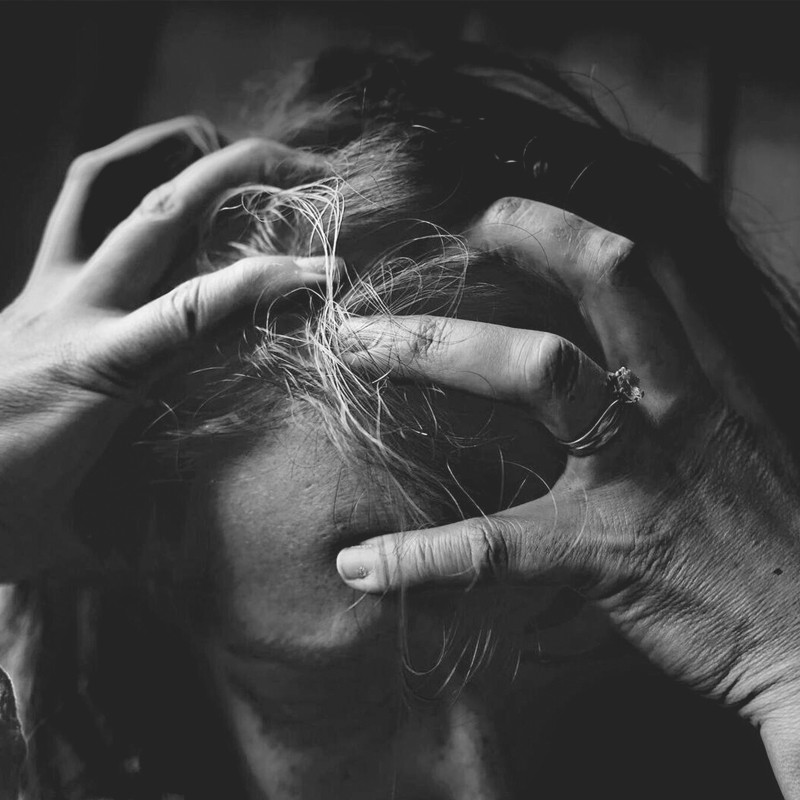The Difference Between Anxiety And Stress
When it comes to stress and anxiety, we tend to use the two terms interchangeably but, in reality, they mean completely different things. Dr Dimitrios Paschos, Consultant Psychiatrist at Re:Cognition Health, says there are similarities between the psychical symptoms, such as rapid heart rate, muscle tension and headaches and both can manifest in similar ways, with broken sleep, irritability, exhaustion and difficulty focusing. And they can interlink – stress can cause anxiety and vice versa. But there are key distinctions between the two, as he details below.
Stress
It takes two to get stressed: the threat (or stressor) and the person under threat. Characteristics of both play important roles in how stress affects our body, brain and behaviour. It seems that the list of things that stress us out keeps growing; who would have thought email would become a top source of stress in the office, or that social media would put young people under so much pressure?
We may all wish for a stress-free life but the biological ability to become stressed has been a hugely important advantage for survival – had our ancestors remained serene at the sight of an approaching lion they wouldn’t have been around for long. A powerful defence mechanism is activated to prepare for a ‘fight or flight’ reaction within fragments of a second after perceiving a serious and imminent threat. The heart starts pumping faster and breathing is accelerated too. The aim is to boost freshly oxygenated blood to the legs and arms, whose blood vessels are dilating at the same time to receive the extra supply (which is what causes that feeling of wobbly knees during anxiety attacks). The pupils in the eyes open wider, vision becomes sharper and powerful stress hormones like noradrenaline and cortisol are secreted, kickstarting a cascade of biological reactions to increase energy supply and prepare the body for various types of threats.
Learning to deal with stress is unique to each individual; coping mechanisms that work for one person may not be effective for another, so it may be a case of trial and error. For stress to be addressed and reduced, it’s important that the source is identified, so effective actions can be taken to help combat it.
Anxiety
It's very normal for people to experience anxiousness at some point in their lives, whether it’s starting a new job, going for an interview or competing in a big event. However, some people experience persistent anxiety, with feelings of intense nervousness or worry affecting them in various ways and at different times. Psychological symptoms of anxiety can be very extreme and may include thoughts that the person is going to die, lose control, be sick or faint, which can be very traumatic. Physical symptoms of anxiety can include tingling in the hands and feet, dizziness, difficulty breathing, nausea, hot flushes, shaking and perspiration, among many more.
The Difference
Stress differs from anxiety as it arises in relation to a particular stressor, whether that be work, home or relationships. When the stressor is removed, so is the stress. This isn't the case with anxiety as the symptoms can persist and sometimes the stressor isn't identifiable. There are many different types of anxiety conditions, including obsessive-compulsive disorder (OCD), body dysmorphia, claustrophobia, fear of flying, post-traumatic stress disorder (PTSD), separation anxiety, social anxiety and phobias, to name but a few.
Dr Paschos’ top tips for reducing stress & anxiety...
Reduce stimulants: Alcohol and caffeine can increase stress. Instead, drink water or herbal teas to keep hydrated and enable your body to cope better. Review your diet to ensure you are receiving adequate nutrition.
Exercise: This helps to metabolise the stress hormones adrenaline and cortisol and restore calm in the body. Physical exercise also helps promote sleep.
Get a good night’s sleep: Sleep deprivation or sleep interruption can increase stress levels. Sleep helps our brains clear away toxins, plaques and proteins that build up throughout the day. Sleep also helps us to remember the new things we’ve learnt and improves concentration, mood and metabolism, so it is vital we bank between six and eight hours of sleep each day.
Meditate: This is a great way to unwind, relax and clear the brain, helping to alleviate life stresses. Meditation reduces the level of the stress hormone cortisol.
Don’t internalise: Talk about your stress triggers. A problem shared is a problem halved. Sometimes just talking through a problem can help rationalise it and release tension; independent advice can be very beneficial.
Don’t try to do everything yourself: Enlist help where you need it. Don’t be afraid to delegate and ask others for assistance when you need it and don’t be afraid to say no.
Always take a lunch break: Mental performance drops if we don’t take breaks; decision making becomes slower, attention levels wane and thinking can become more rigid. Taking a break can help clear the mind and provide clarity.
Make lists: Outline the key focus of the day and week. Prioritise the workload and action from the most important. Delete any actions that are ‘nice to have’ and not necessary, or put them on a ‘rainy day’ list.
Focus on one thing at a time: With so many distractions, from social media, news feeds, messages, phone calls and the barrage of emails we're all bombarded with daily, it can be hard to stay focused and concentrate on one thing at a time. But by having many things on the go, tasks don’t get completed thoroughly or with the optimum amount of attention. Try to unplug – put the phone on silent and only check emails once an hour.
Get social: Socialising helps to reduce anxiety and depression and improve mental sharpness. It’s important to establish and maintain good social networks and support systems.
Seek help: If you feel you can’t cope, your stress levels are unmanageable or your health is being affected, it's imperative you seek professional medical help. There are many treatments that can help manage and alleviate symptoms and it’s important that you consult with an expert who has expertise in the particular field.
For more information on alleviating stress and anxiety, visit RecognitionHealth.com
DISCLAIMER: We endeavour to always credit the correct original source of every image we use. If you think a credit may be incorrect, please contact us at info@sheerluxe.com.






